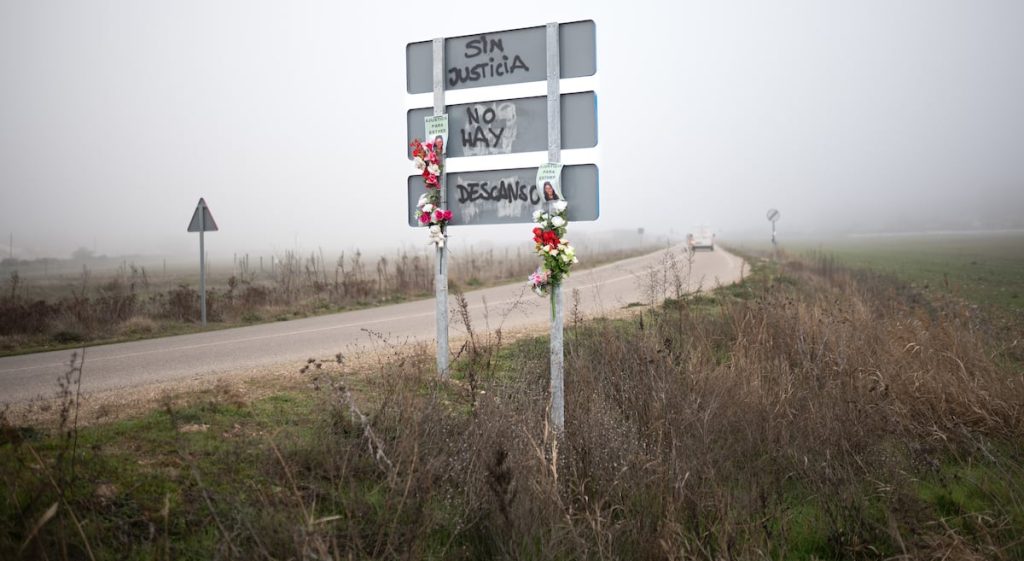Esther López, a 35-year-old woman, disappeared in Traspinedo (Valladolid, with a population of 1,200) on the night of January 12, 2022. Her body was found in a ditch near the village on February 5 following three weeks of unsuccessful searches and investigations. From the beginning, police inquiries pointed to one person: Óscar S., a friend of the victim and the last person believed to have seen her alive. He has always maintained his innocence, providing an alibi for his actions that the Central Operative Unit (UCO) of the Civil Guard believes they have disproved with detailed technical analysis. Despite this, the suspect had managed to delay the legal process through legal resources. The arrival of a new judge has put an end to this back-and-forth by considering the exhaustive police reports as “credible in attributing the facts to Óscar.” Almost three years after the incident, on December 20, the accused will have to testify for the first time in a court as a suspect in what appears to be the final push in the case. The victim’s relatives, who had been demanding the detention and indictment of the friend for some time, have welcomed the decision.
The investigators have reconstructed the events of that January night, revealing that both the accused and the victim visited several bars in Traspinedo with other friends, but at some point, they were left alone. Then, following a possible argument, near the suspect’s house, he allegedly got into his car and struck the victim. She was left seriously injured but did not die. The suspect reportedly left her for several hours in the winter cold, aware that she had consumed drugs and alcohol. The autopsy revealed that the woman died from a combination of internal bleeding caused by the hit and run, hypothermia, and the effects of the drugs. Investigators believe that after finding biological traces belonging to López in the suspect’s vehicle, he allegedly transported her to the ditch where she was found weeks later. Furthermore, the position of the body when found was consistent with being placed there deliberately and not as a result of an accidental collision. The accused has always claimed that he left her alone on the side of the road because she insisted on continuing to party—a claim refuted by the other companions that night—and then washed his hands of the situation.
The current judge, who replaced the previous one, considers that “the investigated facts, for now, and without prejudice to further classification, have the characteristics of murder for the private prosecution, and of murder/manslaughter and failure to provide assistance for the Public Prosecutor.” She ordered the initiation of the jury trial procedure that brings Óscar S. closer to the dock. This is what the Public Prosecutor had requested considering there were “sufficient indications” against the sole suspect. The prosecution rebuked him for failing to assist the victim after the hit-and-run, waiting between one and three hours until he verified she was dead, and then proceeded to hide the body, placing it in the trunk of his car and disposing of it hours later in the location where it was found, without revealing its whereabouts. The judge of the Court of Investigation Number 5 of Valladolid has summoned the accused and the parties involved in the procedure for December 20, at 11 a.m., where they will be informed of the crimes for which he may be tried.
The defense of the accused has expressed “absolute bewilderment” at the judge’s decision, criticizing the importance placed on the latest UCO report that supports the judicial decision. According to their point of view, this has led to a “hastened conclusion of the investigation.” They also oppose the idea of a jury trial. Sources close to the investigation insist on the consistency of their evidence, supported by geolocation data from the victim and accused’s mobile phones matching to cell tower connections and Wi-Fi terminals nearby houses. The process has been drawn out over three years as the prosecution gathered incriminating evidence and the suspect’s lawyers presented their arguments. Óscar S. appeared twice before the judge, maintaining his innocence and managing to remain free throughout this time. The representation of López’s family tried to have him detained pending trial, but their request was declined in January of this year based on the court’s assessment that there was no risk of flight or destruction of evidence. Now, Esther López’s sister and relatives have demanded the accused’s immediate imprisonment on December 20, in case his shift in judicial status prompts him to flee.


